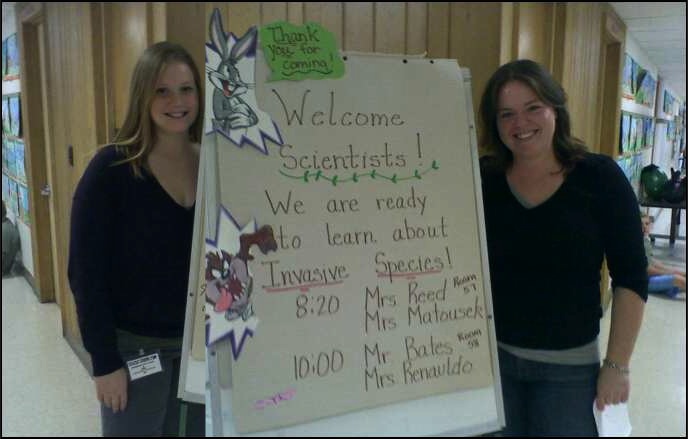See the original article on the LTER webpage (reproduced below)
The landscape of science education is undergoing a fundamental shift. Updated standards, to be followed by all science teachers in Michigan, emphasize that science is an active process: instead of the memorization of facts in textbooks, students should be taught the ability to generate new knowledge by testing hypotheses and interpreting data. In other words, students should be taught how to use the scientific method and make arguments from evidence. However, with the scientific method comes uncertainty in results. Educators, like K-12 Partnership teacher Connie High (Delton-Kellogg High School), express concern that teachers and their students are not comfortable with the messy data that can result from inquiry, such as results that do not support a hypothesis, or data with lots of variability: “We often found that although lab experiences were fun for students, they lacked skills in summarizing the meaning or goal [of their research]… we needed some data sets for students to practice on.”
As graduate students, we have experienced our fair share of unexpected results and experiments gone awry, and have no problem reassuring teachers that this is nothing to be afraid of. Often, we learn more from data that goes against our original hypothesis, but this can be intimidating in a classroom setting with limited time or ability to conduct follow-up experiments. Because we cannot go into every classroom to share this message, we thought that it would benefit students to work with data collected by scientists, instead of just seeing the polished results presented in textbooks.
Along with other fellows in the K-12 Partnership at KBS, we developed an educational tool aimed to do just that. Data Nuggets are worksheets that give students the chance to work with real data – and all its complexities. Each Data Nugget includes a brief background to a scientist and their study system along with a small, manageable dataset. Students are then given the scientist’s hypothesis and must use the data to construct an argument as to whether the data does or does not support it. One of our priorities has been to provide resources for students of all ages and skill levels because we recognize that students are often overwhelmed with data interpretation. As such, we have created Data Nuggets for students ranging from grades K-16, with varying levels of difficulty. We hope providing this structure will allow teachers to build these skills throughout a student’s entire education, ultimately preparing them for a career in science.
As we present Data Nuggets in classrooms and at national conferences, we continue to get great feedback from teachers on ways to improve the Nuggets and how teachers see them as fitting into their classrooms. “As we get our students ready for ACT testing, Data Nuggets are wonderful sets to use in our classroom because they are relevant and introduce “real” research to our students who might not have this type of exposure otherwise.” (K-12 Partnership teacher Marcia Angle, Lawton Middle School).
As scientists, we also see Data Nuggets as a great way to share our research with the public. We have each created Nuggets from our own dissertation data (Liz – invasive species, Melissa – animal behavior). Because we believe Data Nuggets could be a great way for all researchers to communicate their work as scientists, our future plans are to hold workshops to help scientists make Data Nuggets of their own. Communicating science to broad audiences is a skill that is becoming increasingly desirable for acquiring jobs and grants. We think Data Nuggets will help develop these skills in scientists of all disciplines and help them to think broadly about the societal importance of what they do.
Data Nuggets are currently funded by NSF’s BEACON Center for the Study of Evolution in Action, and originated through MSU’s GK-12 program at the Kellogg Biological Station.


